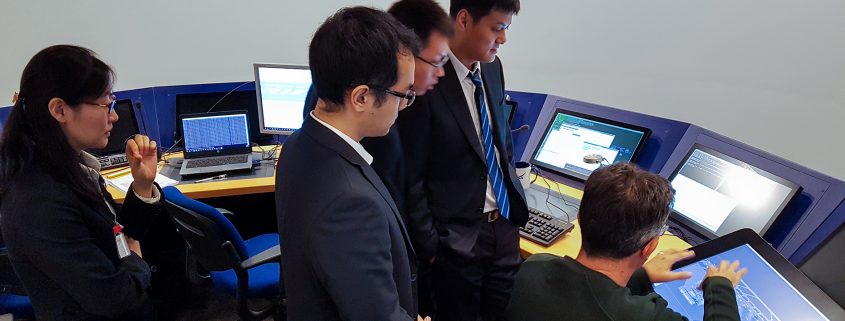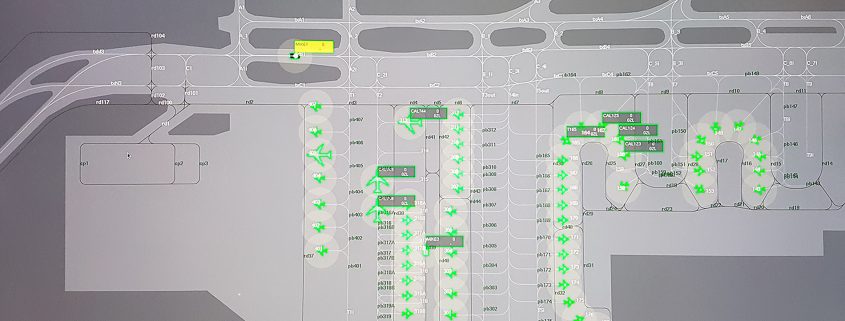At the end of September 2017 a new software developed by CASRI for the detection and alerting of conflicts on taxiways and on the apron (Taxiway Conflict and Area Intrusion Detection) has been tested by NLR. CASRI is the Second Research Institute of the Civil Aviation Authorities of China (CAAC), and is the largest company for development and implementation of technology in aeronautics on the Chinese market. Being a part of CAAC, CASRI delivers CNS and ATC products to Chinese Air Traffic Control (ATMB), and also produces airport systems, such as taxiway and runway lighting systems and multi-lateration systems, cockpit systems, fuel management systems and information, baggage and security systems. CASRI thus is a company with a notable name and a long history in the Chinese aerospace industry. Their corporate office is located in Chengdu, one of the major cities in Western China.
NLR has been in contact with CASRI since 2014. In 2015 a first series of software verification tests were carried out for a Runway Incursion Alerting (RIA) controller tool developed by CASRI, a software that warns air traffic controllers of potential conflicts on and around the runways. The primary reason for CASRI to choose NLR as partner for carrying out their software testing was the experience that NLR has in developing different types of airport safety net algorithms and the fact that NLR is the developer and owner of NARSIM, the NLR ATC Research Simulator. NARSIM allows for realistic and flexible simulation of air traffic for system testing.
In continuation of the successful tests carried out in 2015, the tests this year were performed in order to verify a software prototype of CASRI for detecting taxiway conflict and area intrusions at Chinese airports. More than 90 realistic traffic scenarios were elaborated and set up on the NARSIM-Tower platform for testing. As a special highlight a completely re-worked touchscreen interface was used for the NARSIM pseudo-pilot position to allow for initial set up and fast adaptation of the different traffic scenarios. When the tests were concluded, CASRI indicated their satisfaction about the professional way in which NLR carried out the activities and expressed their hope for a deepened collaboration between CASRI and NLR in the future.



